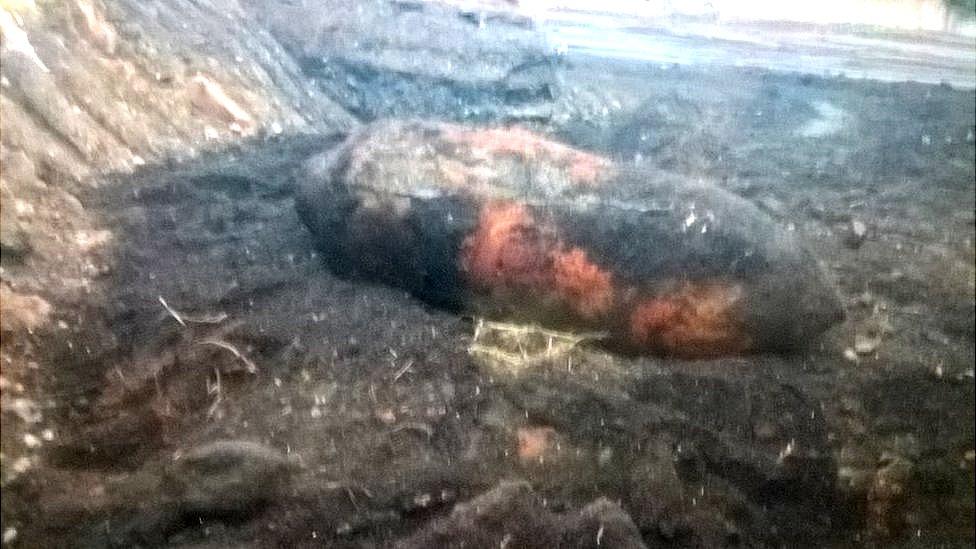'Delicate operation' at Birmingham WW2 bomb site
- Published
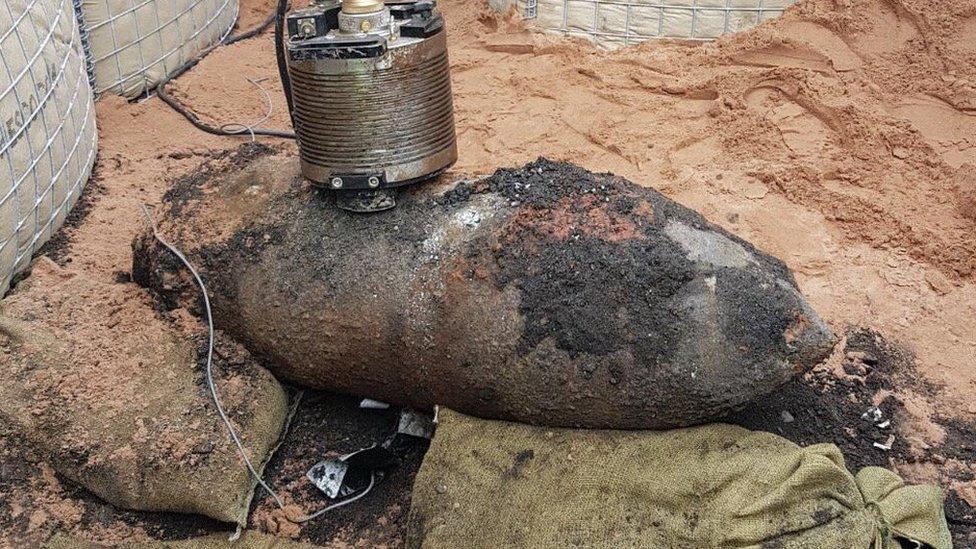
The WW2 bomb that experts say contains "139kg of high explosives" has been surrounded by sandbags
Bomb disposal experts in Birmingham are taking part in a "major, delicate operation" to make a wartime bomb safe.
A major route into the city remains closed for a second day, rail services are affected and people have been evacuated from their homes.
The bomb disposal team said 13 lorry loads of sand had been brought in to create a "sizeable igloo" around the 250kg (551lb) bomb.
Junctions four to seven of the M6 have been closed ahead of detonation.
West Midlands Police, who has praised the bravery of the team at the scene, said the motorway between junction four near Coleshill and seven at Great Barr will shut in both directions while a controlled explosion is carried out.
The A38(M) Aston Expressway, linking the city centre with the M6, has been closed since Monday morning.
How much of a threat are unexploded bombs?
How Royal Navy disposes of WW2 bombs
Mike Luedicke, deputy commander of the Army's UK bomb disposal unit who is co-ordinating the operation, said the team was "very confident it was a classic Second World War German air drop bomb".
Complex case
"It's called an SC2 50 - 250kg in weight, 139kg of high explosives," he said.
He said a "large cave of sand bags" consisting of 250 tonnes of sand had been put around the site.
Maj Luedicke said it had been a particularly "complex" case because the fuses were "on the underside and pressed into the earth and so our process of identification and diagnostics has been a real challenge".
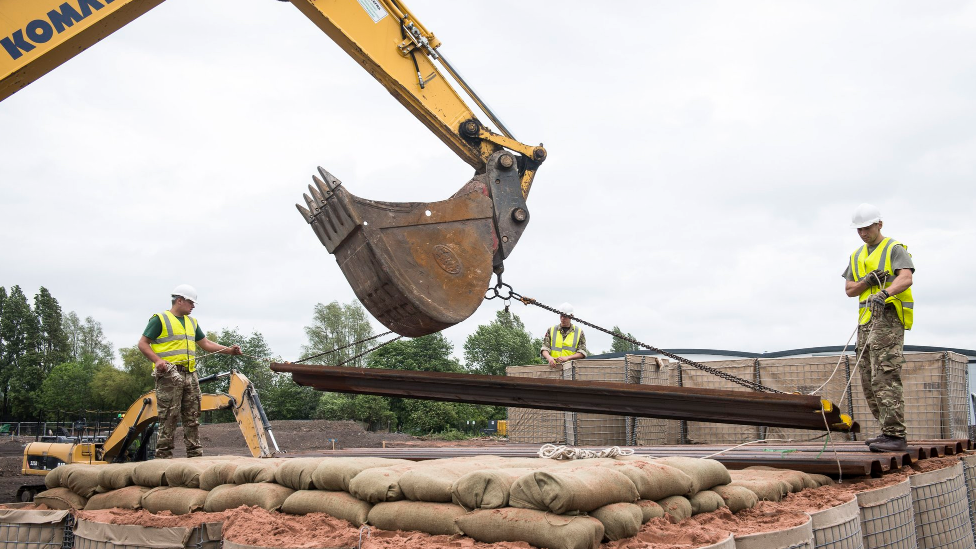
The "major" operation is expected to last for most of Tuesday
"We need to either magnetically or chemically freeze the fuses to essentially put a handbrake on them," he said.
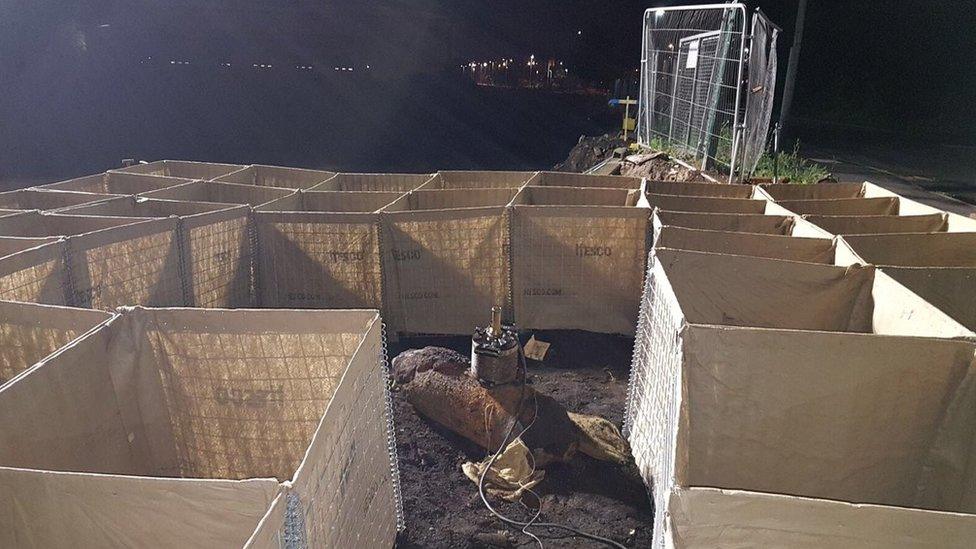
Work at the scene of the bomb carried on into the night on Monday
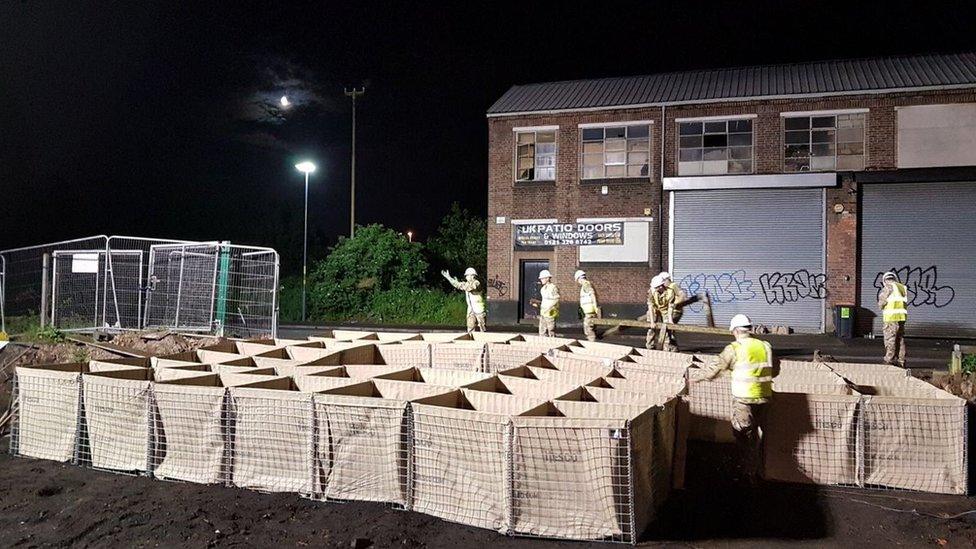
The bomb disposal team said 13 lorry loads of sand had been brought in to create a "sizeable igloo" around the bomb
Exit and entry slip roads at the M6 at junction six, Spaghetti Junction, also remain closed because of the operation.
London Midland rail services on the Cross City Line between Lichfield and Birmingham New Street have been suspended.
Delays of at least 30 minutes are being reported on the roads as motorists take alternative routes.
Radio WM reporter James Fanning said his journey from Aldridge to the city centre took nearly 2.5 hours, rather than the usual 45 minutes.
"It's an absolute nightmare," he said. "I must have take the worst route possible."
Evacuated residents talk of disturbed sleep
A 500m cordon was set up after the discovery at about 09:45 BST on Monday and hundreds of homes and businesses evacuated.
About 80 people were forced to spend the night in a rest centre, the Red Cross said.

Train services north of Birmingham have been affected
Paige Collins, of Aston, and her 10-month-old daughter, were among residents who spent the night at Alexander Stadium in Perry Barr.
"We're in a dusty gym - I think it is normally used for martial arts. It is a bit draughty," she said.
Ms Collins said she slept for about "an hour" on a mat and sheet after putting her daughter to sleep in her pushchair. She said cots should have been provided.
"I was trying to go into my house about 2:45pm [on Monday] and the police were at the bottom of my road saying everyone has to be evacuated," she said.
Residents were told they could be there until about 18:00 BST, she said.

Analysis by Birmingham historian Carl Chinn
Birmingham was a major munitions centre, as were Manchester and Coventry, and on 19 November 1940, the Germans attacked the city very heavily. At the time Aston and Tyseley were very industrial areas.
The raid carried on for nine hours on 19 November, but it could have been the next night when this device was dropped.
On 20 November, nearby Queen's Road was absolutely destroyed by a big bomb. Queen's Road is right next to where this bomb was found.

National Rail Enquiries said trains between the city and Lichfield Trent Valley were expected to be cancelled or amended until the end of the day and rail tickets would be accepted on buses.

Volunteers have provided food and drinks to evacuated residents
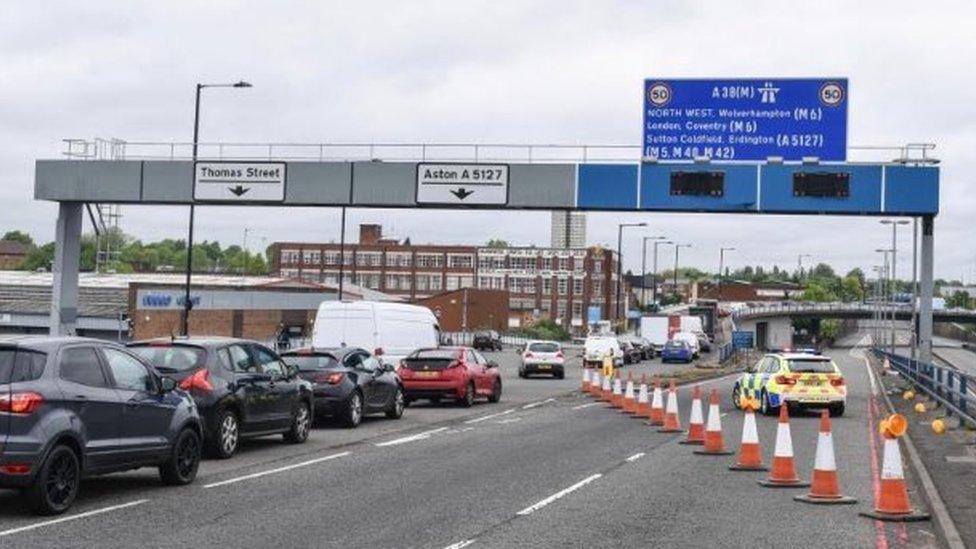
The incident is causing traffic congestion and delays
Ch Supt Chris Johnson, of West Midlands Police, said he was "humbled by the bravery" of the bomb disposal experts who had been at the site overnight making the device safe.

- Published16 May 2017

- Published16 May 2017
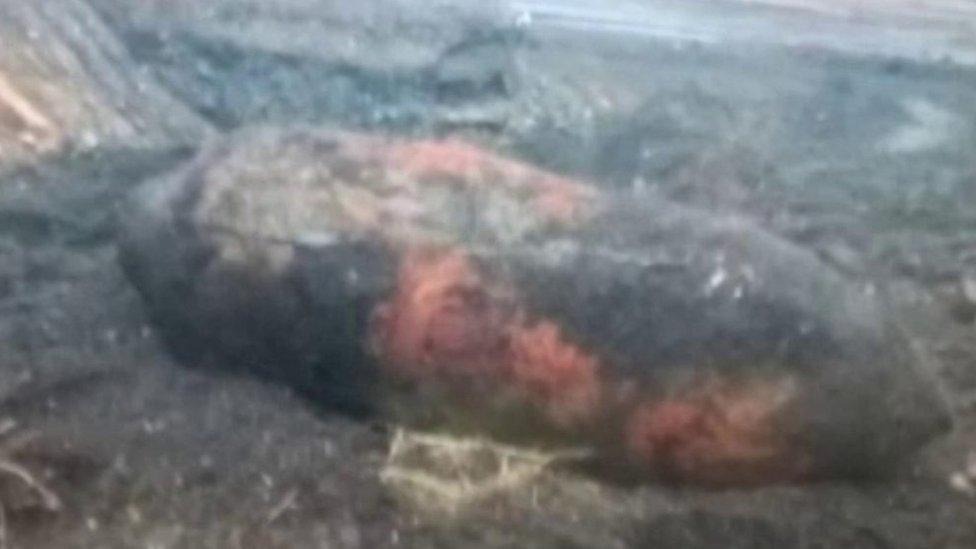
- Published15 May 2017
